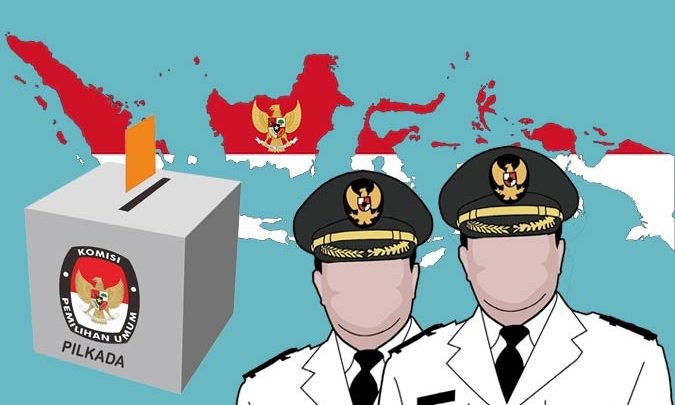Supporting the 2024 Regional Elections Without Money Politics to Realize Trustworthy Leadership
By: Riyanto Pratama )*
The 2024 Regional Head Elections (Pilkada) in Indonesia are an important moment that reflects the aspirations and hopes of the people for better leadership. Each Pilkada is an event for the people to determine the future of their respective regions through their right to vote. However, along with the journey of democracy in the country, a major challenge has emerged that threatens the integrity of the Pilkada process, namely the practice of money politics. This has become a concern for many parties, including the government, civil society, and prospective leaders who are committed to creating clean and fair Pilkada.
President Joko Widodo (Jokowi) highlighted one of the main challenges in the implementation of the Pilkada, namely the practice of money politics. President Jokowi sees money politics as not just a technical problem in the Pilkada process, but a disease that has long eroded democracy in Indonesia. In the President’s view, this practice is always present in every stage of the Pilkada, both at the regional and national levels. President Jokowi’s experience as a politician involved in various elections, from city-level Pilkada to presidential elections, strengthens his view that this practice is difficult to avoid.
In an effort to overcome this problem, President Jokowi called for an active role for the Election Supervisory Body (Bawaslu). The President asked Bawaslu to be more proactive in supervising and preventing potential Pilkada violations, including money politics. President Jokowi also invited the public to actively participate in this prevention effort. Without public involvement, efforts to overcome money politics will not run optimally.
With strict supervision and cooperation from all parties, the practice of money politics can be minimized, so that the Pilkada in Indonesia can run more honestly, fairly, and with dignity. Furthermore, active participation of the community in reporting the practice of money politics is also important to build awareness of the importance of maintaining the integrity of the election.
The challenge of handling money politics was also highlighted by Bawaslu DKI Jakarta. Facing the upcoming 2024 Pilkada, the practice of money politics is one of the biggest threats to a clean and integrated democracy. According to the Head of Bawaslu DKI Jakarta, Munandar Nugraha, this challenge does not only involve the perpetrators who give money, but also the recipients who are often part of a corrupt system. Munandar emphasized that the perpetrators and recipients of money politics can be subject to criminal sanctions, but this actually adds to the difficulty in handling, because recipients are often reluctant to report for fear of being subject to legal sanctions.
In addition, Munandar said that money politics is the toughest challenge for the Integrated Law Enforcement Center (Gakkumdu) team in every region of DKI Jakarta. The Gakkumdu team consisting of Bawaslu, police, and prosecutors is required to carry out intensive supervision and take firm action against violations of money politics. However, these efforts are often hampered by a lack of evidence or the reluctance of the public to report.
In an effort to prevent money politics, Bawaslu DKI Jakarta has collaborated with various related parties, such as community leaders, organizations, and local residents, to participate in the supervision of the Pilkada. This participatory supervision is expected to suppress the practice of money politics in the field. By involving the community directly in supervision, it is hoped that it can increase awareness of the importance of maintaining a clean and integrity-based Pilkada.
Furthermore, Munandar added that relying on reports from recipients of money politics is often ineffective because recipients are reluctant to report the violations, considering that they can also be subject to criminal penalties. Therefore, independent groups, such as community leaders and organizations, are expected to be effective bridges in conveying information and helping to monitor the course of the Pilkada.
On the other hand, Member of the Indonesian Election Organizer Honorary Council (DKPP), Ratna Dewi Pettalolo, emphasized the importance of women’s roles in overseeing a Pilkada that is free from money politics. According to Ratna, women have great influence in families and communities, so they can play an active role in rejecting money politics and encouraging voters to choose based on the program and quality of the candidate, not because of the lure of money.
The practice of money politics not only damages the integrity of the regional elections, but also erodes public trust in the democratic process. Money politics turns the regional election process into a financial transaction event, where people’s votes are bought and sold, not as a means to channel aspirations and elect the best leaders. Rejection of money politics is the main foundation of various efforts to create fair and clean regional elections. This rejection is not only the responsibility of the government and election organizers, but also all elements of society, including political parties, community organizations, and voters.
By rejecting money politics, it is hoped that leaders elected through regional elections are truly the people’s choice based on a vision, mission, and work program that is real and beneficial to the community. Leaders who are elected cleanly are believed to have a higher moral responsibility in carrying out their duties, and are less bound by the interests of groups or individuals who fund them. Leaders who are trustworthy and responsible are elected, bringing long-term benefits to the regions and communities they lead, so that development and community welfare can be achieved more effectively and evenly.
)* The author is a contributor to the Jendela Baca Institute
